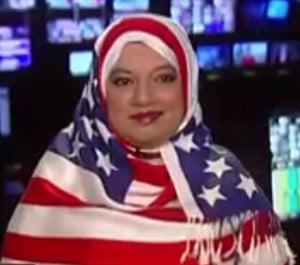
Before I go right into this post, I think I should make some things clear. This is not a post about the “moral” or religious side of sex work. In fact, very much the opposite. It is rather an analysis of how sex work is depicted in intersection with Muslim identity and traditionally Muslim garments like the hijab and the niqab.
You will note that I use the term “sex work” rather than prostitution, which from some perspectives is a colonial term meant to target Indigenous women in countries like Canada. Further, the term “prostitution” is loaded with moral arguments, which I am trying to separate from the overall theme of this post. Now, when discussing sex work, we are not talking about human trafficking. The key aspect in here is choice. Those engaged in sex work not by choice are rather trafficked individuals. And whether or not as a feminist or as a Muslim, you believe that sex work can be a choice or/and is right is a matter of debate for another time.
This post stems from a recent article by the Daily Beast, where Nico Hines reports that Kamillah (using the pseudonym Fairuza), a London-based escort, offers nikah mut’ah services to Muslim men for an additional few. Although the author refers to Kamillah as the owner of an 80,000 follower Twitter account, I have had trouble finding it, so I can’t speak to the veracity of everything reported in this article.
The piece is based on an article by The Sun, which quite inappropriately reports on an “Arab hooker” providing services to British Muslims through mut’ah, so “they can ‘avoid sinning.’” The piece is accompanied by a blurred image of a person in hijab, and just as one starts wondering about the details of the story, one is conveniently invited to join the newspaper by paying a fee that will give one access to the article and also an “undercover video” of said woman.
As many of you know, nikah mut’ah, or temporary marriage as it is often translated, is a controversial topic among Muslims. For many, it marks one of the main theological divides between Sunnis and Shias, where Sunnis are said not to practice it and Shias are “accused” of the opposite. Hence, the article also plays the sectarian card to make a point about Muslim masculinity and Muslim women’s role in the sex industry.
The article and Kamillah became instantly famous to the point where Pulse.com, India Times and the Daily Star, among others, picked up the story. But why has this story become so popular? Kamillah is definitely not the only “Muslim escort” or sex worker out there. In fact, in the past few weeks we have heard from sex workers in Tajikstan using hijab to drive up their prices, the obsession of “radical Muslims” with sex workers and pornography and the rise of Mia Khalifa in the porn industry.
Nevertheless, the Daily Beast gives us a taste of what it means to talk sex and Islam in the same article in much of the Anglophone media in the West. The need to conflate orientalism, sexual fetishes and gendered assumptions about Muslim women is too much of a temptation to let the opportunity pass, apparently. Remember when belly-dancing was said to be the paramount of Middle Eastern culture? When Amira was depicted as using her hijab as a sexual tool in Amira & Sam? Or when Sebastian Farmborough transformed the niqab into a fetish?

We have once more an example of how Muslim women, with their hijabs and niqabs, are transformed into fetishes not only through the actual article reporting on a “MuslimEscort” (key in here is the religious qualifier), but through the hijab. The explicit pictures, in some of the articles, showing Kamillah in hijab speak to the transformation of the veil into a costume. Hijab is like the sexy nurse outfit or the French maid disguise, just more “exotic…” You know, Muslim men like it exotic!
Further, the portrayal of Muslim men as overly concerned with their religious wellbeing to the point of looking for mut’ah-practicing escorts establishes the othering of Muslim masculinities. Perhaps some Muslim men truly look for mut’ah services from escorts, but the reality of things is that for many other men the religious consideration is a non-issue; otherwise, these men would not visit non-Muslim escorts… or escorts, period. Thus, transforming Muslim men into “blindly-religious” men with “Shia tendencies” towards mut’ah resembles the stereotypes of Muslim and Arab men as troubled masculinities engaged in polygamy, child marriage, and everything “deviant” out there.
What is more, the “MuslimEscort” theme troubles me in different ways. First, why the religious qualifier? We do not talk about “Christian-white-escorts.” We only qualify the term when it comes to the “other.” In fact, the sex trade industry itself, like porn, plays with these stereotypes because they sell. Mia Khalifa is more famous for wearing hijab in some of her videos, than for her actual performance in pornographic films.
There is also the expectation of “good behaviour.” Muslim-girls-gone-bad are a major theme these days. I am actually surprised we do not have a reality show with that title yet. The theme was prominent when Rima Fakih became Miss USA and it is has followed other Muslim women like Noureen Dewulf. Muslim girls raised conservatively and then going out into the world of bikinis and sex seems to be every Western media outlet’s dream! So it seems that “bad” Muslim girls are not only hot and liberated, but they fit with the overall assumption that everything “exotic” should be up for Western consumption.
But finally what troubles me the most is that articles like this one detract from any serious conversations about sex work among Muslim and non-Muslim communities. We are too busy orientalising and othering people that we forget that sex work among Muslims is a reality that has economic and social aspects to it. Sex work experiences are challenging, particularly in settings of criminalization, violence against women and social taboos. Thus, the making of the “MuslimEscort” further contributes to the marginalization of Muslim women in the sex trade industry and their right to privacy and support.














